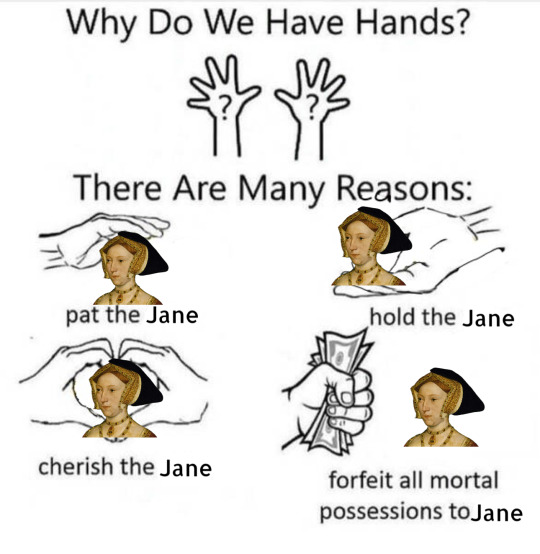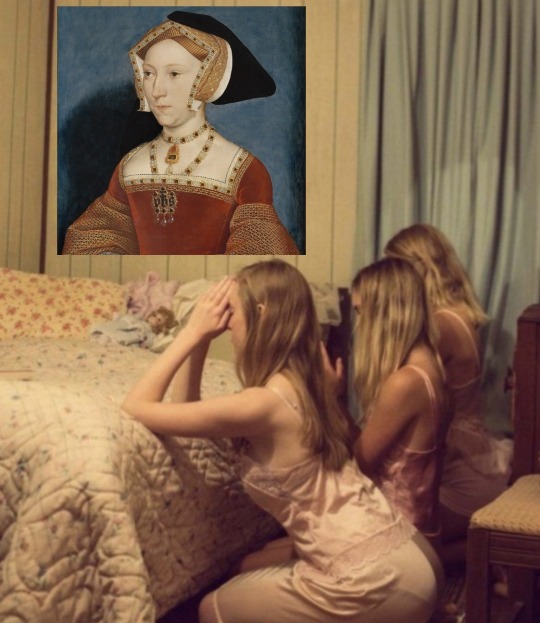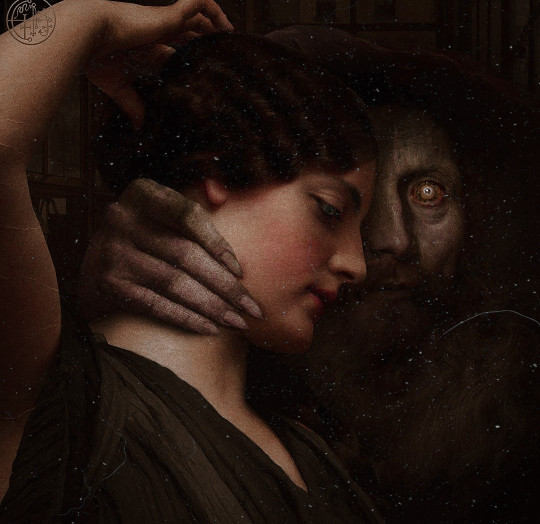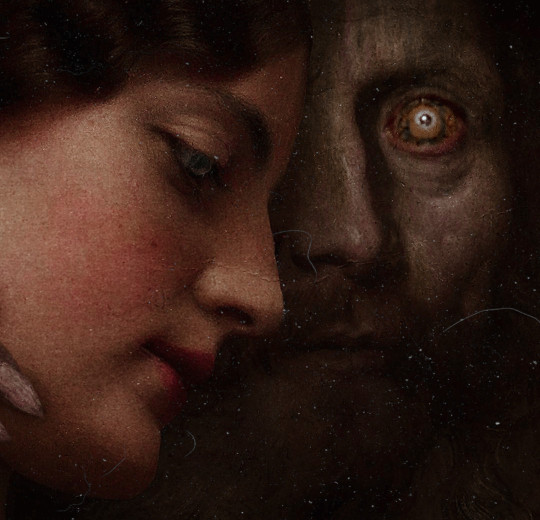Photo



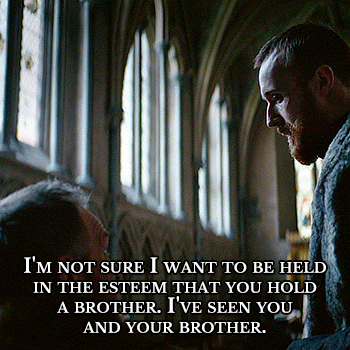
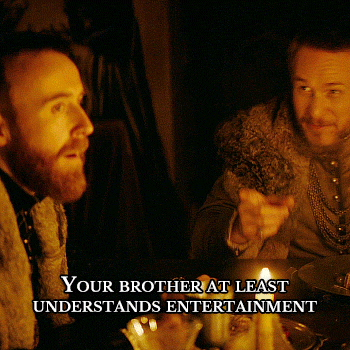





He’d see you dead. You know that, right?
John Dudley and about 40 years of Seymour experience.
Becoming Elizabeth (2022), 1x01 | 1x02 | 1x03 | 1x04 | 1x06
116 notes
·
View notes
Text

It’s because at first the version of Mary that exists in Chapuys’ head is little more than a sexist, paternalistic remix of her real identity, so thoroughly warped by the age & class difference that he sees her as barely more than a porcelain madonna, a moral/religious figurehead, so sexless she’s barely human. But as Mary ages and their relationship is maintained through less explicitly stressful circumstances then the ones it was conceived under amidst the Great Matter, she begins to grow outside of the parameters he established for her internally. She gets her life back, she’s not just pretty and in pain anymore, she’s energetic, provocative, romantically active, loud. And that scares him, the way it scared him with Cesare’s mother, but it also excites and intrigues him, not least of all because he can’t be physically intimate with Mary the way he was with the mistress who bore his illegitimate son. The illegitimate son he left so he could go perform diplomatic duties in the same country as Mary. Who wants to be a mother. Who loves children. Who is at once everything he’d ever want in a woman and young enough to be his biological child, facts which would be so blatantly immoral if he ever confronted their coexistence that he has to force himself to stay in denial about it. While Mary goes around planning for the future and playing footsie with Phillip of Bavaria, more or less unaware that her very existence is eating this poor bastard’s brain. Eustace is a 50 year old politician with TSwift’s “You Belong With Me” playing in his head every time he meets eyes with his dead friend’s 21 year old daughter. It’s pathetic. It’s disgusting. It’s narratively delicious.
7 notes
·
View notes
Text
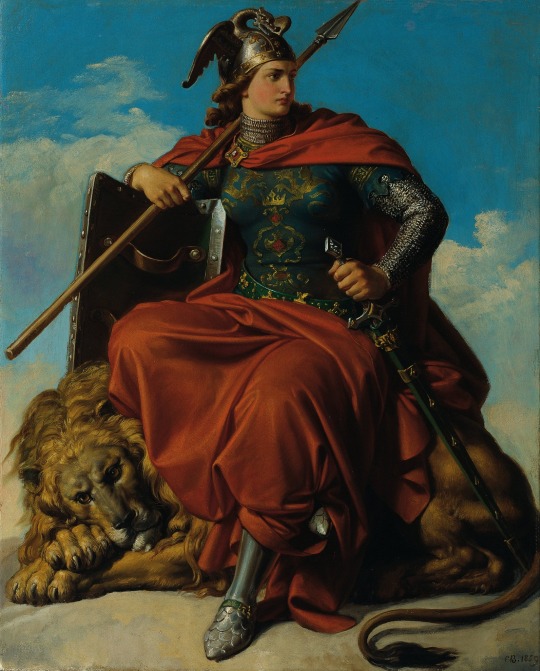
Karl von Blaas, "Allegory of Bravery", 1859
2K notes
·
View notes
Text
“This is melancholia. Wanting to eat yourself whole.”
— Diamond Sharp, from “Mal de Ojo,” published in Joint (via lifeinpoetry)
13K notes
·
View notes
Text
[henry vii/john dudley/mary i] was overwhelmingly unpopular because of [Being A Miser/His Cruel And Unjust Protestantism/Her Cruel And Unjust Catholicism]. nobody liked having [taxes/protestantism/bullying teenage girls/catholicism] cruelly and unjustly forced upon them, and what the people really wanted was [that guy who murdered his nephews/henry viii/mary but before she really got going with Her Cruel And Unjust Catholicism for some reason/elizabeth i] so that they could stop [paying taxes/bullying teenage girls/being protestants/being catholics] and instead [pay taxes but for war with france this time/bully adult women/be catholic/be protestant! hooray! gloriana!].
9 notes
·
View notes
Note
Which is the earliest time Jame Seymour should have been introduced in "The Tudors"? Since Jame had scored a place in Katherine of Aragon's court in 1529, she should have been introduced sometime during the last couple of episodes of s1, along with Edward and their father John.
After a recent rewatch, during the scene at the s1 finale where a nameless girl rebukes Anne Boleyn after her wishing that all Spaniards would be put under the sea speech, I thought that that part should have gone to Jane Seymour. That rebuke could have been one of Jane's first lines in the series.
You’re right, Jane should’ve been introduced earlier. The earliest Jane could’ve been at court was 1527, or more likely 1528, to my understanding. Katherine of Aragon made her speech at Blackfriars in 1529, and The Tudors leaned into the idea of Jane as connected to Katherine - the scene where Mary gives Jane Katherine's cross to help her through labor comes to mind. As for Anne, there were an assortment of... nameless, jittery blonde women swirling around her during the early seasons. The creators could've slotted Jane into one of their places. Maybe they meant to? I know there was some kerfuffle about her casting.
If the comparison scene between Jane & Anne before the latter's murder is anything to go off of, the creators wanted to set Jane up as ideologically opposed to Anne, to some extent. It would've been nice if Jane was given a more self-actualized role in that opposition, rather than being shown as this silly, flighty girl who stumbled into a position for which we're obviously supposed to judge her. I just know she and Katherine Howard are sharing tea cakes in hell.
Sir John's offscreen death in Season 3, and the casually callous way Edward communicated it to Jane, also would've landed much better if they'd introduced Jane earlier. Her and Edward's sibling dynamic is one of my favorites in the show, communicated subtly through shared looks, close ups and such. In Season 2, Jane follows Edward's lead, allowing him to influence her decision making something like a surrogate father. Jane is certainly the passive member of their relationship, but that wasn't used to cast her as stupid, or lesser than the other wives, which I appreciated. Edward asking Jane if she'd like to be Queen once he and his father start planning for it speaks to this dynamic that's sort of childish, in a sweet way - Edward leads and Jane follows, but willingly, not slavishly.
In Season 3, when Henry starts controlling Jane more overtly, Edward remains a man in her life who she's allowed to criticize and chastise, even as he's demonstrated to be brutally unscrupulous in his own right (see: that awful sexualized torture scene.) His wife Anne Stanhope is shown putting horns on him, but Edward barely notices, never mind getting mad at her for it. Compare that to how savagely Henry reacted to the vaguest whiff of infidelity in his Anne. The first one, that is.
It's almost like The Tudors' Henry is a decent public figure, but a monstrous domestic one, while The Tudors' Edward is a monstrous public figure, but a decent domestic one. And Jane is the woman who connects the two of them, binding their families into one, however temporarily. As Jane lays dying, Henry compares her to his late mother, and Jane is introduced to Henry by her own father, himself depicted as this jolly old fat country lord. Sir John's characterization in The Tudors was sparse, but maybe that's a blessing, considering the shaft Thomas Boleyn got.
Which leads me to another comparison. Thomas and George Boleyn's posthumous reputations both took a massive hit with this show. George is rendered not just abusive but sexually violent, the shadow of early 2000s homophobia hanging over The Tudors' portrayal like a pall. His father's depiction is more unfair than offensive, but that's not much of an improvement. This promo pic of him just makes you feel dirty, as Olga Hughes pointed out, lmao. We the audience can assume that Pádraic Delaney's George Boleyn got his cruelty from his father, while Anne (and Mary) are the family's more kindhearted diamonds-in-the-rough, a position that is reinforced by George's atypical protectiveness over Anne, which is ultimately used against him. Jane and Edward's relationship isn't as emotionally intimate as George and Anne's, but Edward and George's duel positions as men who are capable of being both negligent & violent and paternal & attentive sets them up as interesting examinations of the kind of man who takes root in an environment like this, much like Charles Brandon, Eustace Chapuys, Francis Bryan, etc.
The missing piece in the equation is Jane. Henry's fatherhood is well explored, Anne's sisterhood is the most overtly sympathetic part of her characterization, Mary I's conflict as a daughter is what drives her through the whole series. Jane is a sister, daughter, mother and wife, and there are a few shining moments where she really titillates: inquiring about her family's plans, selling the necklace Henry gave her, chiding Edward for mishandling her father's death, protecting Mary no matter the cost, things like that. But her most well-developed relationship is the one she has with Henry, and that one says more about him as a man than it does her as a woman.
How did Jane feel about Sir John that encouraged her to lean on Edward, even though he was easily identifiable as a worse man than his father? How did Jane feel transitioning from Katherine's household to Anne's, especially with regards to her catholicism? What did she think about the dissolution of the monasteries when it first started? Did she want to get married and have children, or did she just know she'd have to one day? What were her prospects before Henry? What does she like in a man anyways?
Unfortunately, we don't know, because The Tudors doesn't bother to tell us. Wish it had been different, to say the least.
#Wow this got away from me#Jane Seymour#Anne Boleyn#The Tudors#Henry VIII#edward seymour#thomas boleyn#George Boleyn#john seymour#asks#purplefictionlover#sa tw
4 notes
·
View notes
Photo
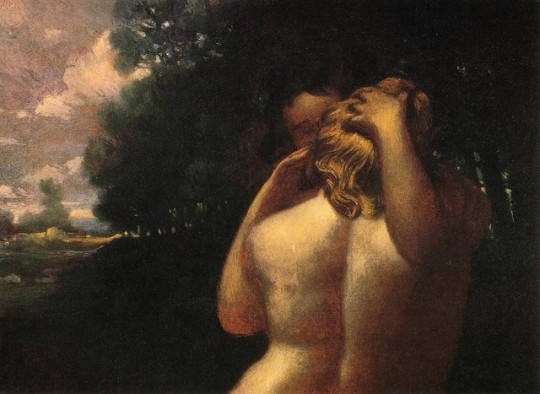
Cupid and Psyche, 1843 by William Page (American, 1811–1885)
737 notes
·
View notes
Text
whenever i'm trying to talk myself out of buying something i don't need i always hear my old russian professor's voice echoing in my head: "WHAT??? WILL YOU DIE THE RICHEST MAN IN THE GRAVEYARD?" and then i make an unwise financial decision
126K notes
·
View notes
Text
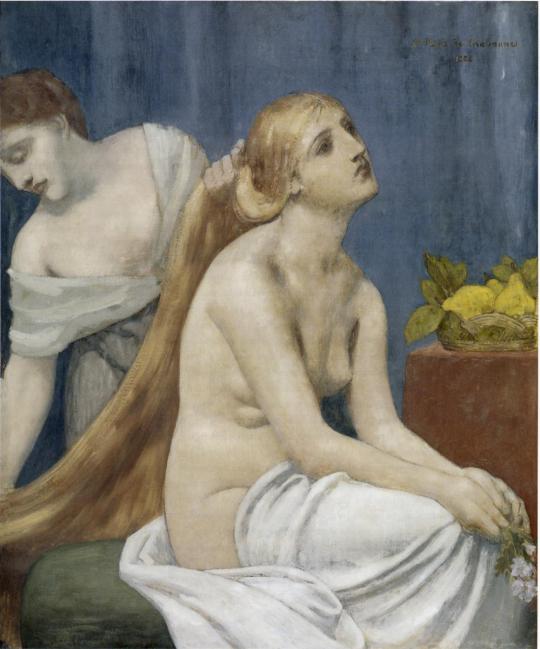
The Toilette by Pierre Puvis de Chavannes (1824 - 1898)
673 notes
·
View notes
Photo

Chanel Fall/Winter 1997 Haute Couture
4K notes
·
View notes
Text
RIP eustace chapuys you would’ve loved piss play
6 notes
·
View notes
Text
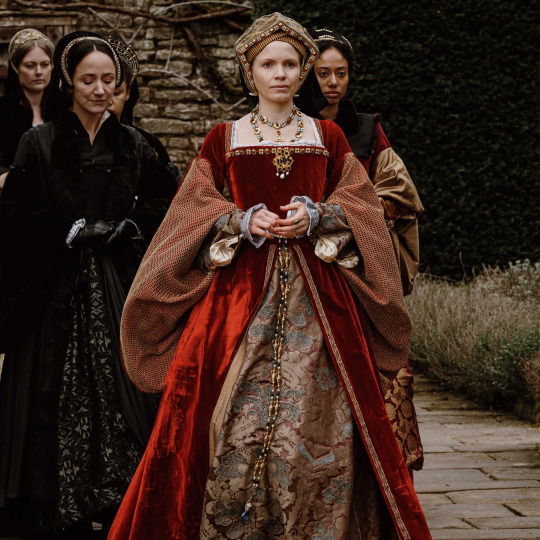
“The lowest born woman ever to become queen of England, she was a quiet success in the role. Jane took direct control of her household and lands, secured her stepdaughter’s rehabilitation and, crucially, bore a son. Although only queen for eighteen months, she remains the model of the perfect Tudor queen consort.” (Elizabeth Norton, Six Queens: Passion and Peril at the Court of Henry VIII)
46 notes
·
View notes
Text


New Jane Seymour content will have my ass doing the mushu like clockwork
3 notes
·
View notes
Text
New Jane Seymour content will have my ass doing the mushu like clockwork
3 notes
·
View notes
